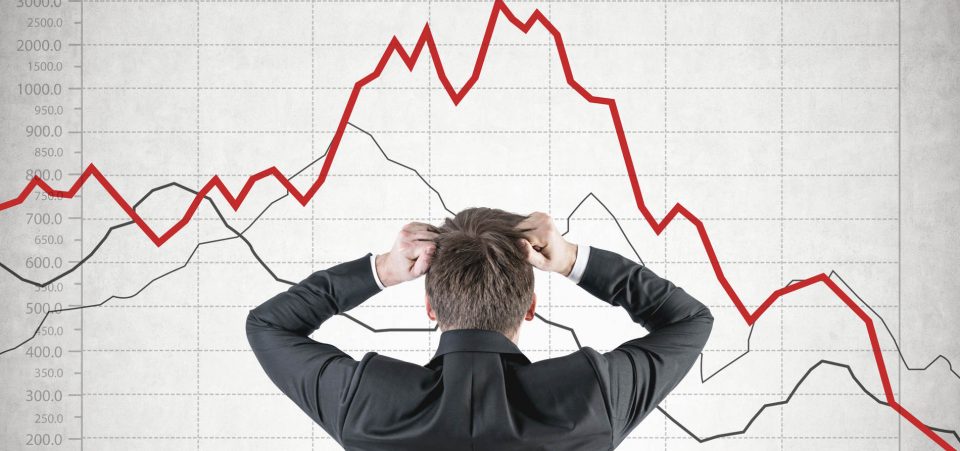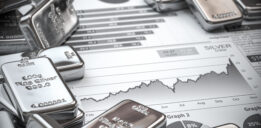Will the Tech Stocks Spark a Stock Market Crash With Buybacks and Hubris?
If you are an average or more experienced investor lacking the advantages of the institutions, you may want to stay away from the FANG stocks: Facebook, Inc. (NASDAQ:FB), Apple Inc. (NASDAQ:AAPL), Netflix, Inc. (NASDAQ:NFLX), and Google parent Alphabet Inc (NASDAQ:GOOG). Tech stocks could be the leading edge of the next major stock market crash.
The Dow Jones may continue to sustain 25,000 points or better, but there’s nothing to keep the index there in the medium or long term. The next stock sell-off will be more of a race than a marathon. (Source: “Morgan Stanley: The biggest sell-off since February is coming and it’s going to hit the average investor hard,” CNBC, July 31, 2018.)
Apart from the data—which no longer applies, given the ever more illogical course of stocks—it makes sense to exercise caution, even in the best of times.
Small or Large, a Stock Market Crash Is Always Lurking
The conditions now are practically begging for a correction…and that’s being sarcastic.
Facebook has delivered mixed results for its latest quarterly performance. By “mixed,” I mean a combination of strong financial performance and uncertain prospects. Therein lies the dilemma of the tech or FANG stocks.
Facebook, Netflix, and Twitter Inc (NYSE:TWTR) have already shown weaknesses in their armor.
Their current valuations reflect past performance and a whole lot of buybacks. After all, how did you think Apple achieved a record trillion-dollar market cap? (Source: “The Stock Market’s Next $1 Trillion Milestone: Buybacks,” The New York Times, August 6, 2018.)
Their valuations are sending the kind of warning that all investors should heed. Even if revenues and earnings remain favorable in the next quarter, there’s a natural limit to their growth. They depend on ever increasing numbers of users.
But in Facebook’s case, the rate of user growth has dropped. And this reminds us that eventually, it will end; there are only so many humans on the planet.
A Similar Scenario Concerns the Other Big Social Media/Tech Companies
Tech and social media companies are not like, for instance, car companies, which design redundancy and wear and tear into their models so as to encourage innovation and the purchase of newer models every few years.
Apple Inc. or Microsoft Corporation (NASDAQ:MSFT) and others like them can expect more growth because they operate a similar model. But they’re the exception.
Indeed, the collapse of the FANG stocks represents the clearest symptom of the coming stock market crash.
The tech stocks will drag down many others with them. And, just in case you have forgotten or were not around to remember it, tech bubbles on Wall Street have inflated and exploded before.
The boom of the tech stocks on Wall Street appears ready to turn into a bust.
And should anyone doubt it, remember that it would hardly be the first time that tech stocks disappoint. After all, they have been the ones to get most of the attention for the past two decades. It’s only normal that some of that attention has been somewhat misplaced.
The tech stocks, in turn, could set off a volatility bomb. It would go off and deflate the current financial bubble, fueled first by quantitative easing (QE) and then sent over the edge by tax cuts and stock buybacks.
What Is a Buyback and Why Is It a Bad Omen?
Beware the stock buyback—by definition, a transaction by which a publicly traded company buys its own shares with cash or its equivalent. This cuts the number of free-floating shares available for purchase on the public exchange.
The fewer the shares available, the higher that the price of each share rises. Thus, the buyback is an artificial way of increasing a stock’s appeal.
True, some investors—short-term profiteers—like share repurchases because they don’t care where the increase in share value comes from, so long as the stock goes up.
But long-term investors who like to “set it and forget it,” as an old commercial once encouraged, should watch out for stock buybacks.
A little buyback can be alright. A lot produces disastrous outcomes.
For the past decade or so, share repurchases have tripled. Yet they were illegal until 1982. And some concerned senators, on both sides of the aisle, would like to ban them again. (Source: “U.S. Senators Challenge The S.E.C. On Share Buybacks,” Bloomberg, July 8, 2018.)
Actual or added value played only a minor role in fueling the markets. The bull market trend that started in 2009 was lubricated by low interest rates. And that’s the other reason to pay close attention now.
Stock repurchases, when used too often, tell investors that the companies buying their own shares have no courage and no ideas. It’s the equivalent of doping in some sports, and the effects in the long term are nothing short of devastating.
Rising interest rates, combined with the realization that many FANG/tech stocks lack the infallibility they appeared to have, could likely cause the next stock market crash.
Tesla Could Be the Trigger for the Big Stock Market Crash
The next stock market crash is coming, and it will focus on the tech sector.
Be on the lookout for Facebook and Twitter, but even more so for Tesla Inc (NASDAQ:TSLA).
Controversy is surrounding Tesla, the famous manufacturer of electric cars that appeal to many consumers. In short, the company’s entry-level “Model 3” has come to market late and with many defects.
Some customers have reported bumpers falling off during the trip from the dealership to their residence. (Source: “Bumper Falls Off Brand New Tesla Model 3 After 30 Minutes and Some Rain (Updated),” Jalopnik, August 13, 2018.)
And then there are potential big legal problems for Elon Musk. Some investors (short sellers) have formally complained to the U.S. Securities and Exchange Commission (SEC) that Elon Musk violated their trust when he posted on Twitter about a potential deal involving the Saudi Sovereign Fund. (Source: “Update on Taking Tesla Private,” Tesla Inc, August 13, 2018.)
Musk tweeted that he wants to privatize Tesla, should its shares reach $420.00. That forced short sellers to take cover, boosting the TSLA stock price again.
It remains to be seen whether Musk hinted in a blog post about a Saudi purchase plan on purpose in order to boost Tesla’s share price (as some contend) or whether it’s simply a tool to afford him greater control of the company.
Tesla’s board of directors was caught by surprise. Savvy investors should try to avoid that kind of surprise, which could lead to another stock market crash.






